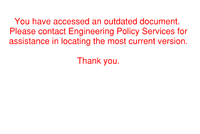822.6 Best Practices: Difference between revisions
Jump to navigation
Jump to search
m add article |
m remove "821" from the link |
||
| Line 25: | Line 25: | ||
'''Herbicides''' | '''Herbicides''' | ||
:* [[:Category:821 Herbicides and Roadsides| | :* [[:Category:821 Herbicides and Roadsides|Herbicides and Roadsides]] is used for guidelines for a herbicide program | ||
:* Undesirable weeds should be controlled by either chemical or biological means. | :* Undesirable weeds should be controlled by either chemical or biological means. | ||
Revision as of 08:41, 14 August 2007
Safety
- Personnel engaged in mowing should be trained in the operation of mowers and must be familiar with the applicable safety guidelines as set forth in MoDOT's Safety Policies, Rules & Regulations employee handbook.
- Tractor tires should be set at the appropriate tread width and inflation that provides optimum stability. Always consult the operator's manual before making any adjustments to the tractor tires.
- For safety concerns and appearance purposes, a cut should not be made on top of rock cuts or down from the top of an unmowed slope.
- Dead trees and limbs, fallen or standing, which may create a hazard, should be promptly removed.
Appearance
- Mowing cycles and litter pickup should be planned to provide a desirable appearance at all times and especially for the Memorial Day, July 4th and Labor Day holidays.
- Coordination of the mowing effort is important not only between areas but between districts, also, to ensure that similar routes will present the same appearance at the same time.
- The transition between mowing widths and patterns will vary and should be gradual to give a natural and pleasing appearance.
- All required trimming should be completed with each mowing cycle.
- Visible litter should be removed prior to and after each mowing cycle.
- Landowners should be allowed to mow the right-of-way adjacent to their property if they feel it will enhance the appearance of their property.
Herbicides
- Herbicides and Roadsides is used for guidelines for a herbicide program
- Undesirable weeds should be controlled by either chemical or biological means.
- An effective herbicide program is a strong part of a properly managed roadside.
- Herbicides may be used to keep sidewalks, paved slopes, paved islands, paved shoulders, commuter parking lots, drains, pavement joints, barriers, curb lines, paved ditches, etc. free of vegetation. If growth does occur in these areas, the vegetation should be removed.
- Invasive plant species should be controlled that are considered mutually undesirable by MoDOT and adjacent landowners.
Cultural Practices

- Erosion control measures may be necessary if there is not adequate vegetation to prevent erosion or if operations require removal of vegetation and there is a possibility that silt will leave the right-of-way.
- Fertilization and/or reseeding should be considered where difficulty in establishing vegetation is encountered.
- Mowing height is the actual height of cut.
- Do not mow when turf and soil conditions are wet to the point that turf damage or ruts will occur.
- Native vegetation should be left standing and encouraged in areas that are prone to drifting snow.
- Desirable trees and shrubs should be pruned to promote proper growth habit.
- Delayed mowing allows for seed production that may result in healthier stands of turf.
Miscellaneous
- Refer to your district roadside representative for assistance.

- When mowing to the ditch line, it is acceptable to make a 5 to 8 foot cut on the back side of a V-ditch to help maintain drainage if it can be accomplished without placing the tractor on a slope steeper than 3 to 1. However, for appearance purposes, a cut on the backside of the ditch should not be made. A preferred alternative would be the selective use of herbicides.
- Areas of wildflower, native grass and tree plantings may be signed to indicate what is being accomplished at these locations.